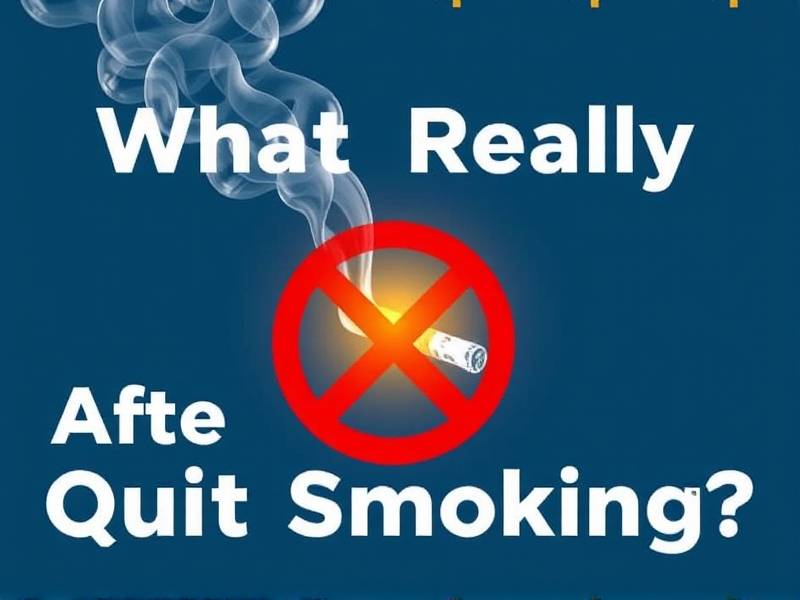What Really Happens After You Quit Smoking?
"What Really Happens After You Quit Smoking?"
Introduction: Quitting smoking is a significant step towards improving one's health and well-being. However, many smokers are often curious about what happens to their bodies after they quit. In this article, we will explore the various changes that occur in the body and mind of a person who has quit smoking.
I. Immediate Benefits When you quit smoking, your body begins to heal almost immediately. Here are some of the immediate benefits:

- Improved Circulation: Within 20 minutes of quitting, your heart rate and blood pressure begin to decrease.
- Enhanced Oxygen Supply: Within 12 hours of quitting, the carbon monoxide levels in your blood drop to normal.
- Increased Energy Levels: Within a few days, you'll likely notice an increase in energy levels.
II. Short-term Benefits Within a few weeks to months after quitting, you can expect the following changes:
- Improved Lung Function: Your lung capacity improves as the cilia (tiny hair-like structures) in your lungs start to repair themselves.
- Reduced Risk of Heart Disease: The risk of heart disease decreases as your blood vessels start to relax and widen.
- Better Immune System: Your immune system strengthens, making you less susceptible to infections.
III. Long-term Benefits After several years of quitting smoking, you can experience even more profound benefits:

- Reduced Risk of Cancer: The risk of developing various types of cancer decreases significantly.
- Improved Bone Health: Your bones become stronger as calcium absorption improves.
- Increased Lifespan: Studies have shown that former smokers tend to live longer than those who continue smoking.
IV. Mental Health Benefits Quitting smoking also has a positive impact on mental health:
- Reduced Anxiety and Depression: Nicotine withdrawal can cause mood swings, but these usually improve within a few weeks.
- Enhanced Cognitive Function: Memory and concentration improve as nicotine levels decrease.
V. Tips for Staying Smoke-free Maintaining a smoke-free lifestyle is crucial for long-term success:
- Identify Triggers: Understand what situations or emotions trigger your urge to smoke and plan how to cope with them.
- Seek Support: Joining a support group or seeking counseling can provide emotional support and guidance.
- Stay Active: Regular exercise helps manage stress and reduces cravings.
Conclusion: Quitting smoking is a challenging but rewarding journey that brings numerous benefits to both your physical and mental health. By understanding the changes that occur after quitting, you can stay motivated and committed to maintaining a smoke-free life.
Remember, it's never too late to quit smoking! Embrace the journey towards better health today!
